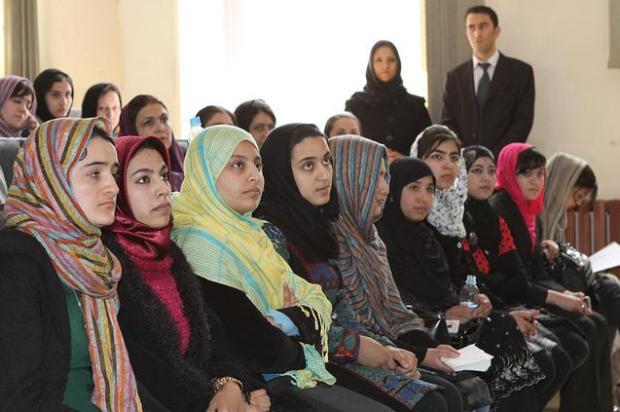As Afghan drawdown continues, question raised over country’s future
Women study at an Afghan university. Prior to the U.S. invasion of Afghanistan, women weren’t allowed to attend school. (Photo courtesy of USAID.)
Whoever wins the U.S. elections come November, American troops and their international allies are likely to continue withdrawal from Afghanistan — planned to be completed by 2014.
After that, the Afghans will be left to face a resurgent Taliban on their own.
Abdul Waheed Wafa, executive director of the Afghan Center at Kabul University, says he’s worried about what’s going to happen once the NATO forces leave.
He says security will get worse, but he’s still hopeful the country can avoid an all-out civil war.
“It’s a different country,” he said. “it’s not like 1991.”
The Soviet Union withdrew its forces from Afghanistan in 1989, but continued to support the Afghan government until Boris Yeltsin came to power in 1991. With the end of Soviet backing, a long-running insurgent civil war erupted into outright conflict, and ultimately led to the creation of an independent Islamic government. That government, though, was forced from power a few years later by the Taliban, which retained power until Afghanistan was invaded by the United States in 2001.
Wafa says his greatest fear, after foreign troops withdraw, is actually for the country’s economy, not just its security.
“Thousands of jobs will be lost when those security bases (close),” he said, “then investors will face an uncertain mood.”
Some 87,000 U.S. troops are currently deployed to Afghanistan, according to a Brookings Institute report. Another 40,000 soldiers, sailors and airmen are deployed on behalf of other foreign countries.
